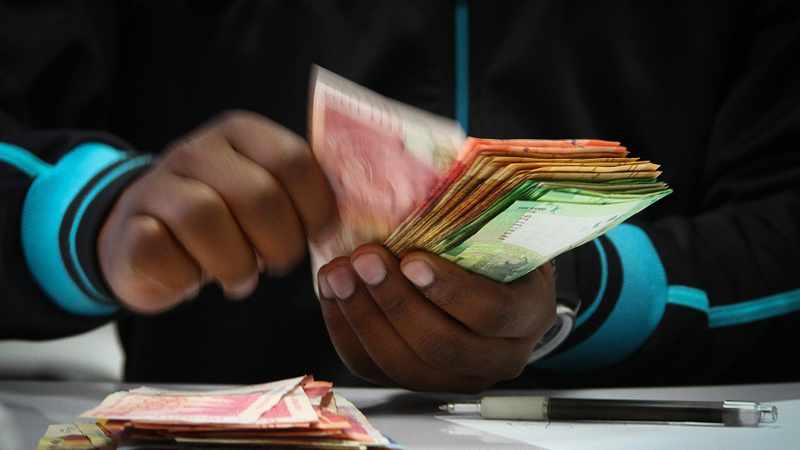
The rand yesterday breached the psychological R17-mark to the US dollar for the first time in 22 months on fears of a global recession as the markets brace for another hawkish US Federal Reserve’s stance on interest rates.
The domestic currency had weakened by more than 1 percent to R17.08 by 4pm yesterday after opening trade at the JSE at R16.92 to the greenback at 9am, also pressured by the dollar strength following Friday’s strong US jobs data.
This was the weakest the rand has been since September 2020 after demand spiked following the easing of Covid-19 restrictions.
Unemployment in the US remained unchanged at 3.6 percent in spite of the world’s largest economy adding another 372 000 jobs in June.
This has left a confusing picture of what exactly the economy was doing, but also grew fears of a slowdown in activity amid recession fears, at least for now, due to rising inflation which has opened the door for the Fed to continue on its aggressive rate-hiking trajectory.
TreasuryONE senior dealer Andre Botha said the only real currency that the rand was losing ground to was the US dollar.
“We have seen the US dollar rampant for the last week as global recession fears and expectations of the US Fed continuing with their aggressive hiking cycle have seen the market running to the US dollar,” Botha said.
“If we take a look at the rand against other emerging markets peers, we see that the rand has lost the same value as most of the currencies in the basket, which makes the recent move a US dollar play.”
- Chamisa under fire over US$120K donation
- Mavhunga puts DeMbare into Chibuku quarterfinals
- Pension funds bet on Cabora Bassa oilfields
- Councils defy govt fire tender directive
Keep Reading
There has been fears of a global recession after major central banks went on a gradual monetary policy normalisation due to accelerating global inflation.
This represents a complete turnaround by the central banks following aggressive interest rates cuts to help with economic recovery after the Covid pandemic.
South Africa’s higher-than-expected inflation data in June also points to a further interest rate hike later this month after a 50 basis points increase in May.
Investec chief economist Annabel Bishop said the rand was facing significant pressure from US dollar strength, and was being afflicted by negative sentiment on international and domestic events.
“Market worries over high inflation are being increasingly replaced by fears of excessive interest rate hikes that drive economies into recession, and risk sentiment in global financial markets is fragile and significantly risk averse,” Bishop said.
“Domestically, severe load shedding has also worried markets over SA’s growth prospects, which in turn risk negatively impacting state finances via revenue generation.”
Eskom yesterday announced that rotational loadshedding will continue for at least the coming week up to 10 days due to a significant backlog in maintenance.
Despite progress on some structural economic reforms in recent years, South Africa’s electricity supply situation has shown no improvement and even deteriorated.
Old Mutual Investments strategist Izak Odendaal said the market narrative had shifted very quickly this year from “inflation is transitory” to “inflation is out of control and will require aggressive central bank hikes” to where we are more or less today, namely “recession is becoming more likely, and inflation and interest rates should therefore decline eventually.”
He said if a global recession did occur, it was likely to be relatively mild in the main developed countries. Household and company balance sheets were generally in good shape and there were few signs of excessive leverage and irrational exuberance.
“The deepest recessions are usually associated with banking crises that follow a build-up of bad loans, typically linked to a property bubble. While there have been property booms in most developed countries, generally borrowers and lenders have been well behaved,” said Odendaal. – IOL BUSINESS REPORT











